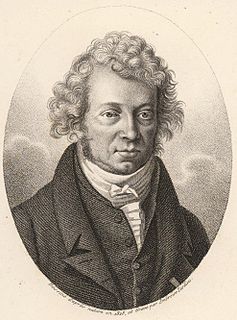A Quote by Morten Tyldum
I thought I knew who Alan Turing was. I've always loved history, and I was actually shocked by how little I actually knew. I was amazed this wasn't common knowledge. Why wasn't he on the front covers of my history books? He's one of the great thinkers of the last century, and he was sort of pushed into the shadows.
Related Quotes
Alan Turing is so important to me and to the world, and his story is so important to be told, so it was a big thing to take up, and I was a little petrified. Like, who am I to write the Alan Turing story? He's one of the great geniuses of the 20th century - who was horribly persecuted for being gay - and I'm a kid from Chicago.
These books can't possibly compete with centuries of established history, especially when that history is endorsed by the ultimate bestseller of all time." Faukman's eyes went wide. "Don't tell me Harry Potter is actually about the Holy Grail." "I was referring to the Bible." Faukman cringed. "I knew that.
in the nineteenth year and the eleventh month speak your tattered Kaddish for all suicides: Praise to life though it crumbled in like a tunnel on ones we knew and loved Praise to life though its windows blew shut on the breathing-room of ones we knew and loved Praise to life though ones we knew and loved loved it badly, too well, and not enough Praise to life though it tightened like a knot on the hearts of ones we thought we knew loved us Praise to life giving room and reason to ones we knew and loved who felt unpraisable. Praise to them, how they loved it, when they could.
The history of lead is a history of neglect. It's a history of decisions on our part not to address the broad implications of what we did to ourselves during the industrial revolution and in the first part of the century when our cities expanded broadly, when we built our housing and we began to depend upon lead as a mainstay of our new industrial culture. We put this stuff in even though we knew it was dangerous, we knew it was going to hurt kids.
Caution in handling generally accepted opinions that claim to explain whole trends of history is especially important for the historian of modern times, because the last century has produced an abundance of ideologies that pretend to be keys to history but are actually nothing but desperate efforts to escape responsibility.
Of all the recruits in his cohort, he had learned the quickest. How to hold the spear, how to stand to spar. He’d done it almost without instruction. That had shocked Tukks. But why should it have? You were not shocked when a child knew how to breathe. You were not shocked when a skyeel took flight for the first time. You should not be shocked when you hand Kaladin Stormblessed a spear and he knows how to use it.
Actually, the highest form of human organization is not realized in the democratic individual. It is realized in a dimension none of us have ever penetrated, which is the mind of the species, which is actually the hand at the tiller of history. . . . It is an organized entelechy of some sort, and human history is its signature on the primates.


































